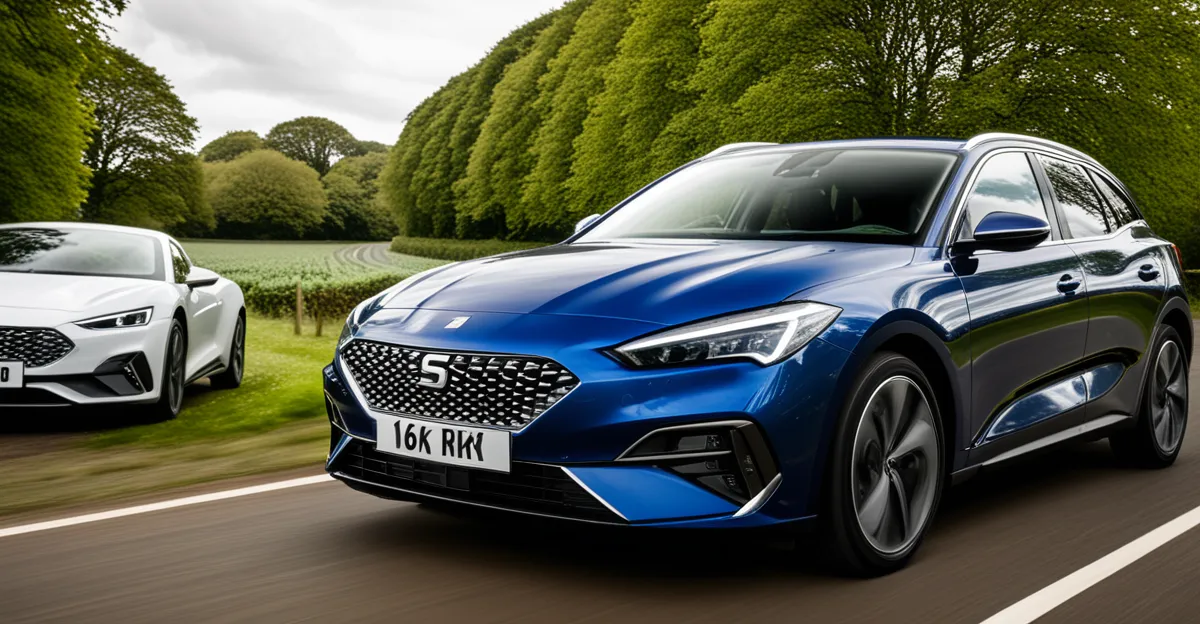Overview of Consumer Demand for Sustainability in the UK Automotive Market
Consumer demand for sustainable cars in the UK has surged dramatically, reflecting a clear shift in priorities towards eco-friendly options. Recent market data shows a consistent increase in buyers opting for vehicles with lower emissions, primarily electric and hybrid models. This trend is driven by growing awareness of climate change and a desire to reduce personal environmental impact.
Key societal factors influencing this demand include heightened media coverage of environmental issues and government messaging promoting greener lifestyles. Additionally, environmental concerns, such as air pollution in urban areas and the urgency of climate targets, play crucial roles in shaping UK automotive sustainability trends. Buyers are no longer solely focused on performance or price; instead, they prioritize a car’s sustainability credentials.
In parallel : What are the environmental impacts of car production in the UK?
In particular, younger consumers and urban residents demonstrate stronger preferences for sustainable cars, suggesting that this trend will expand as these demographics grow in purchasing power. Consumer demand for sustainable cars is also influenced by rising fuel costs, encouraging a move toward electric vehicle adoption as a cost-saving measure over time.
Understanding these evolving UK automotive sustainability trends is essential for manufacturers aiming to meet market expectations and align with broader environmental goals.
Also to see : What are the impacts of UK government policies on automotive innovation?
Regulatory Environment Driving Sustainability
The UK government regulations are pivotal in accelerating the shift toward vehicle sustainability. Strict emissions standards, including mandatory CO2 reduction targets, compel automakers to prioritize cleaner technologies. For example, the UK plans to ban new petrol and diesel cars by 2030, a policy directly influencing manufacturer focus and consumer choices. Such automotive sustainability policies create a regulatory framework that makes sustainable cars increasingly attractive and necessary.
Incentives and subsidies form another critical component supporting demand. Financial benefits such as grants for electric vehicles (EVs) reduce upfront costs, addressing one of the main barriers to adoption. These incentives stimulate purchases, helping to increase market penetration of sustainable models. Additionally, regional policies, especially in urban areas with air quality concerns, further encourage buyers to opt for eco-friendly vehicles.
The UK’s commitments under international climate agreements also shape the policy landscape. These agreements demand consistent reductions in greenhouse gas emissions, which translate into tighter automotive regulations over time. The cumulative effect is a robust regulatory environment that both guides industry direction and bolsters consumer demand for sustainable cars, reinforcing UK automotive sustainability trends.
Automaker Strategies and Industry Responses
Automakers in the UK are intensifying sustainability initiatives, focusing on expanding their electric vehicle production to meet growing demand. Leading manufacturers have committed significant investments to develop new EV and plug-in hybrid electric vehicle (PHEV) models tailored for the UK market. This strategic shift reflects awareness of evolving UK automotive sustainability trends and regulatory pressures pushing for lower emissions.
These automaker sustainability initiatives go beyond just releasing new models. Many firms are adopting sustainable manufacturing practices such as using recycled materials, reducing energy consumption in factories, and implementing carbon-neutral production processes. Such efforts enhance their environmental credentials while aligning with consumer demand for sustainable cars.
The development pipelines illustrate these changes: recent launches include multiple EVs with improved range and affordability, aiming to overcome traditional barriers faced by consumers. Automakers also collaborate with charging infrastructure providers to improve accessibility, helping alleviate concerns around EV usability.
By integrating product innovation with sustainable practices, UK automakers demonstrate a comprehensive response to both market expectations and policy frameworks. This proactive approach is crucial for maintaining competitiveness as the automotive landscape steadily shifts towards greener mobility options.
Market Impact and Industry Performance
Recent UK electric vehicle sales data highlight a robust increase in adoption rates, with EVs and hybrids representing a growing market share. This surge reflects consumer demand for sustainable cars and underscores significant shifts within the UK automotive sector. Specifically, electric vehicles now comprise a substantial portion of new car registrations, marking a turning point in industry dynamics.
The automotive industry adaptation is visible as manufacturers refocus investments toward electrification. Traditional combustion engine models are declining in sales, prompting shifts in production priorities and workforce requirements. While this transition challenges legacy segments, it also opens opportunities for innovation and job creation in emerging green technologies.
Market share shifts favor manufacturers prioritising sustainability, with leading brands gaining competitive advantages by expanding their electric vehicle production and range of eco-friendly models. This trend pressures competitors to accelerate their sustainability strategies to maintain relevance.
In summary:
- EV and hybrid adoption rates show consistent upward trajectory.
- Traditional sectors face disruption but potential growth in sustainable technologies exists.
- Market concentration increasingly favors automakers with strong commitments to UK automotive sustainability trends.
These developments signal a transformative phase, emphasizing the business benefits of aligning with environmental priorities and consumer preferences.









